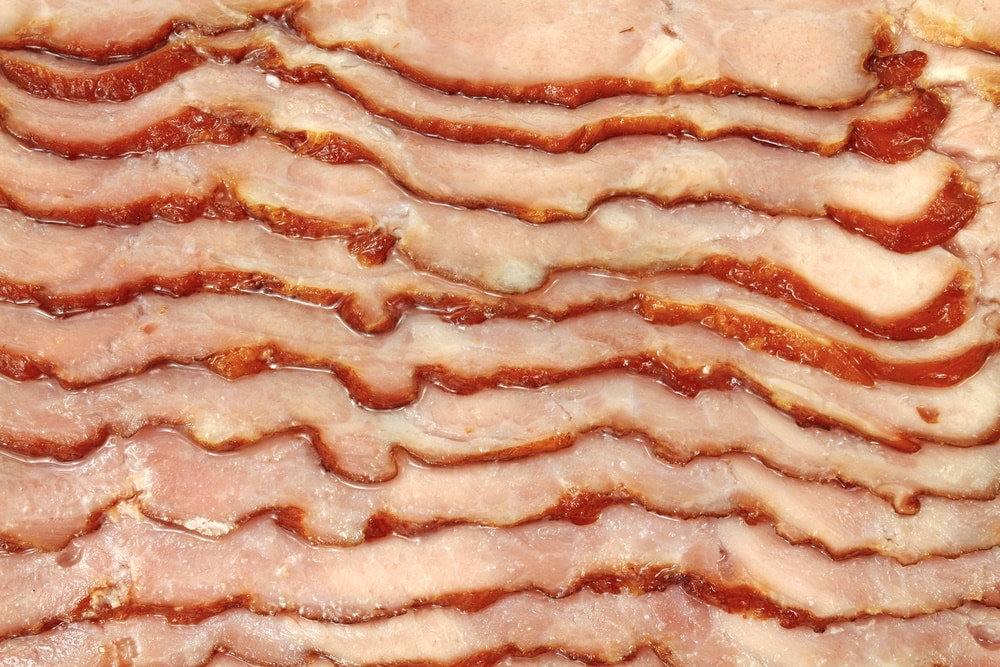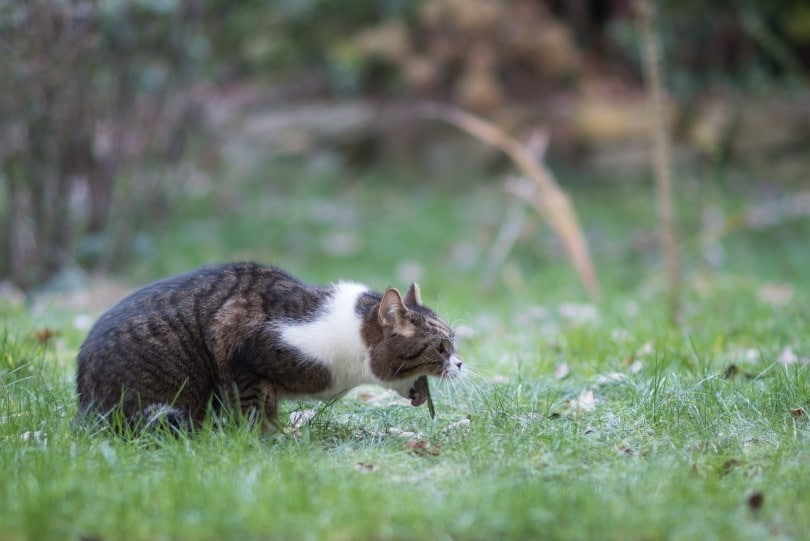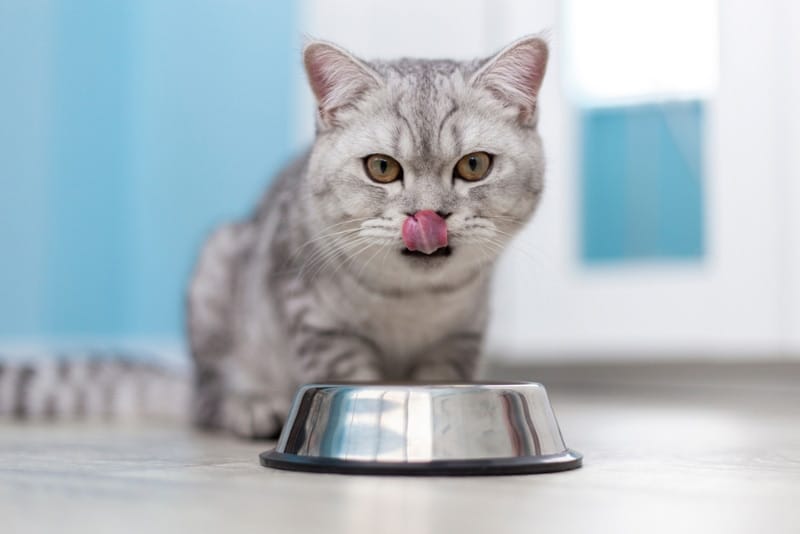Disclaimer
This text has been reviewed for factual accuracy by a certified veterinarian, using information available on the time of publishing. Cat owners are urged to seek the advice of with their veterinarian when making dietary decisions for his or her pet. This text is designed to supply general information nevertheless it doesn’t take into consideration your pet’s health status or circumstances.
Turkey and bacon are two legitimate meats in their very own right, and every of those meats is popular with each humans and pets alike—even when our pets shouldn’t be eating them. Cats are often known as obligate carnivores, meaning they have to eat meat and can’t be vegetarian or vegan. Turkey is a healthy and lean poultry meat that has been utilized in feline diets and snacks for many years. Turkey can also be cheaper than another meats, accommodates good levels of protein, and is commonly gentler and easier for the gastrointestinal system to digest.
Traditional bacon, however, is a much-loved food and treat, with no signs of its popularity decreasing. Really, who can resist the distinct smell while it’s cooking? So, when turkey bacon got here along, it’s comprehensible to think that one has the perfect of each worlds. But is that true? And might your cat eat turkey bacon? Unfortunately, turkey bacon is one in every of those gray areas. While it isn’t toxic to cats, it ultimately is best to avoid feeding it to your cat for several reasons.
What Is Turkey Bacon?
Turkey bacon is a widely available processed meat made up of sunshine and dark turkey meats, that are then seasoned like bacon and pressed into bacon form. Turkey bacon is regarded as a healthier option than pork and pork bacon resulting from the lower calorie and fat content. Moreover, not only is it a really processed food containing added sugar and preservatives, but this meat can also be very high in sodium (salt).
Image Credit: Toasted Pictures, Shutterstock
Can Cats Eat Turkey Bacon?
Regular turkey meat is an excellent and healthy meat to supply your cat as a treat (so long as they usually are not allergic to it) or as the flavour of the predominant weight loss program—turkey bacon, not a lot.
Turkey bacon is perhaps desired by your kitty, and it’s true that it isn’t toxic or poisonous to cats. Nonetheless, the issue with it’s that turkey bacon is an unhealthy snack and meat to offer to them.
Turkey bacon is understood for its salty taste; in actual fact 100g of turkey bacon accommodates 714 mg of sodium. Potentially, and particularly whether it is fed frequently or in abundance, feeding your cat this processed meat can result in some dehydration resulting from all of the salt. While it takes numerous salt to cause health concerns in a healthy cat, cats with kidney disease may not give you the chance to tolerate all of the salt. Cats get enough salt of their cat food, so any extra is often excreted as waste.
Sodium nitrite is a preservative contained in turkey bacon, it’s utilized in pet food in low concentrations determined by law and Association of American Feed Control Officials (AAFCO) guidelines. While the quantity in turkey bacon is regulated to human standards, cats are small and the precise amount you might be feeding your cat is difficult to find out, but could possibly be around 0.012% 1. Sodium nitrite has been linked to the death of three cats, so it’s best to exercise caution with human products containing nitrites 2.
Image Credit: Nils Jacobi, Shutterstock
The calories, fat and sugar in turkey bacon could lead on to unwanted weight gain over time. Chubby cats usually tend to suffer with joint disease, diabetes, urinary issues, heart disease, hypertension and even cancer.
Resulting from the associated disadvantages with turkey bacon, it’s best to not feed it to cats and to go for one in every of the numerous other alternatives as an alternative, despite the fact that attempting to ignore your cat’s longing face and paw taps for a bit of the tasty meat is perhaps hard to withstand!
In case your cat has eaten or is eating turkey bacon and displays any of the next signs, stop feeding the meat and call your veterinarian for advice.
- Diarrhea
- Vomiting
- Nausea
- Pain/discomfort
- Bloating
- Gas
- Gurgling guts/extra noisy tummy
Why Is Turkey a Good Meat for Cats?
Turkey, when put next to turkey bacon, is an excellent food to offer to your cat. This healthy food is a white meat belonging to the poultry family and is commonly enjoyed by loads of cats worldwide. It’s a standard core ingredient of most of the complete feline diets you’d buy at your local store.
Turkey must be fed cooked (warm or cold), nevertheless it is low in fat, high in protein (and all of the vital amino acids), and full of other nutrients, equivalent to the vitamin B complex, magnesium, potassium, zinc, and selenium.
All in all, this meat helps to take care of a healthy body and, particularly, the digestive system. For many cats, it is straightforward for them to digest turkey and absorb all its nutrients. Turkey is often the meat of selection for those cats with allergies to other meats, or for those kitties with tummy and bowel problems.
Despite the goodness of plain turkey meat, make sure to check together with your vet that this human food is suitable to feed to your particular cat, in case of underlying health issues. Also, bear in mind that any extra treats or food offerings outside of their normal weight loss program mustn’t make up greater than 10% of their beneficial each day calorie intake.
Image Credit: TarasBeletskiy, Shutterstock
Conclusion
Turkey bacon at face value could also be a firm favorite in your house, nevertheless it is one best avoided by your cat. The calorie and salt levels are just too high and could cause more harm than good, especially when its enjoyment is short-lived. It just isn’t toxic to them, but on condition that there are a lot of other higher options available to supply, it’s preferable to exercise caution and go for the healthier alternatives.
Featured Image Credit: Elena Veselova, Shutterstock






